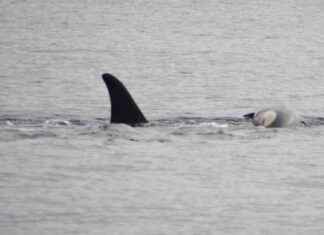Eight years after the events and a year and a half after their trial at first instance, the accused of the terrorist attack in Grand-Bassam are back before the Ivorian justice system. At least in part. As during the first judgment in 2022, four men are expected on the benches of the Court of Appeal on Friday May 17: Hantao Ag Mohamed Cissé, Sidi Mohamed Kounta, Mohamed Cissé and Hassan Barry. The fourteen other defendants are detained in Mali or on the run.
The attack, which left 19 dead (including seven Ivorian civilians and four French) and 33 injured in the seaside resort of Grand-Bassam on March 13, 2016, was claimed by Al-Qaeda in the Islamic Maghreb (AQIM). A killing presented as an act of reprisal against the French anti-jihadist operations “Serval” in Mali and “Barkhane” in the Sahel, but also against Ivory Coast, accused of having handed over members of AQIM to the Malian authorities.
At first instance, Judge Charles Bini followed the public prosecutor’s indictment and sentenced ten of the 18 accused to life imprisonment, including the four present, despite their denials and gaps in the investigation file pointed out by their lawyers . One of them, Eric Saki, then described his clients as “suspected terrorists”, “ideal scapegoats” intended to “pay in place of others to make an example”. For their appeal trial, the lawyer will again plead for acquittal “because the elements of the case point in that direction”, he believes.
The mastermind of the attack, Malian Kounta Abdallah known as “Kounta Dallah”, is still on the run. And, the defense argues, the accused present were only the “little hands” of the commando. Mohamed Cissé is being prosecuted for having served as Kounta Dallah’s driver, Sidi Mohamed Kounta for having hosted him in Abidjan. Hantao Ag Mohamed Cissé is said to have carried out reconnaissance on the beach of Grand-Bassam before the attack; an excursion that he does not deny but which he presents as a simple tourist stay. The last accused, Hassan Barry, transported weapons by road from Mali.
“A formality.”
The Ivorian justice system has not managed to get its hands on the main culprits. Kounta Dallah has not been found since 2016. The Malian Mimi Ould Baba was arrested in his country by French soldiers from “Barkhane” in 2017 and imprisoned in Bamako. Ivorian justice did not require his presence during the first instance trial because his extradition to the United States – where he is being prosecuted for his alleged participation in the attacks of January 15, 2016 in Ouagadougou – was deemed imminent. It was ultimately never announced. Sentenced to life in absentia, Mimi Ould Baba should not attend his appeal trial either.
The civil parties – including the French, who will again follow the trial live by videoconference – hope to see the damages awarded at first instance confirmed by the court, which would open the right to compensation for the damage that they have been waiting for eight years. The survivors of the attack, some of whom are still suffering from physical or psychological after-effects, and the families of the victims are primarily concerned; but also the owners of hotel establishments damaged or partially destroyed by bullet impacts, such as the Etoile du Sud and the Paillote, who reported to the bar that they had suffered a sharp drop in attendance since the attack.
The appeal trial is unlikely to result in new revelations. “It’s more of a formality,” admits a source close to the matter. We no longer expect much from this affair. » Besides, the timetable is still uncertain. The Abidjan criminal court had postponed the hearing for the first time, initially scheduled for April 25, due to a lack of lawyers to defend the defendants due to a conflict between the bar and the ministry of justice over commission remuneration. systematically. If the issue is not resolved by Friday, the trial risks being further postponed.






